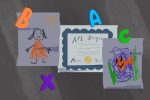“So, what are you going to do with that?” The words every arts and humanities major dreads. Given the recent push toward degrees in healthcare, science, technology, engineering, and mathematics, the pressure is on for high school and college-aged students when it comes to picking a major. However, there is still a compelling case to be made for encouraging students to major in something interesting and not just something marketable. After all, some of the last careers to be replaced by automation are those that still require a uniquely human touch. Humanity is still needed in a world with increasing artificial intelligence.
When it comes to people who perpetuate the idea that degrees in a humanities program are “useless,” one of their favorite arguments is the return of investment on said degrees. Does a degree in the arts and humanities guarantee lifelong underemployment and lower wages? Not necessarily.
Data Doesn’t Support the Idea That Humanities Majors Make Less in Their Careers.
One popular school of thought is that in order to make good money, one must get a job in either STEM or healthcare. However, some studies have put unemployment rates for humanities majors at only around 9%, which, according to University of Massachusetts Global, is “on par with that of computer science graduates.” Additional research in 2018 shows that workers with degrees in business, healthcare or parks and recreation are more likely underemployed than students with degrees in literature, linguistics or foreign languages. In fact, the majors that produced the highest rates of unemployment were “Homeland Security, Law Enforcement, Firefighting and Related Protective Services.”
Data also indicates that liberal arts majors make much more per year than workers with only a high school education, but two out of five humanities majors go on to get masters degrees. This increases their earning potential over the future of their careers.
Students in the Arts Tend to Make More Money Long-Term in Their Professional Work.
One of the most poignant arguments for getting a degree in tech or engineering is that STEM students typically acquire a high-paying job immediately after graduating college. This argument relies on the premise that students should expect to get a proper return on their educational investment. While it may be true that many STEM majors are able to land well-paying jobs early on in their careers, students in the arts tend to make decent money over the duration of their careers as a whole. The pay gap between students in STEM careers and students in the arts is typically reduced once those graduates hit their 40s. Coincidentally, that is around the age that most technology majors peak in their careers. All too often, tech majors find that the technology they studied in school becomes obsolete, whereas majors in the humanities don’t have the same problem. On the contrary, many employers find desirable soft skills in students who’ve majored in the arts and humanities.
Contrary to popular belief, students with liberal arts and related degrees enjoy a variety of different careers. These include law, management, social work, teaching, higher education and more. Hence, some may favor degrees in the arts and humanities because they do not lock them into pre-determined career paths.
Soft Skills Are in Demand Nearly Everywhere.
In a fast-paced and inclusive work environment, an employee who communicates properly and possesses a high level of emotional intelligence is worth their weight in gold. Critical thinking and problem-solving are two skills that typify humanities graduates. These skills are invaluable in the professional world, especially in managerial positions where higher-level supervisors need soft skills to direct their employees. Even students who only take a few courses in the arts and humanities may find extra benefits which help them in their careers. For example, the Association of American Medical Colleges recommends that students in healthcare take humanities courses to increase their level of empathy in preparation for patient care. After all, communication skills are essential to success in the medical profession.
Creative Thought and Expression Can Help Solve Societal Issues.
While technology has helped people solve problems of the past and present, human thought and innovative thinking are still required to solve the problems of the future. From fueling economic development to advocating for human rights, college students who major in the humanities can find themselves in many important roles after college. However, the creative expression that students enjoy when they create or study music, art or literature is vital, even if some consider it impractical. In order for society to thrive, it needs people who bring uniquely creative works into it.
In the end, students should go with the degree path they want to go with.
If a student excels in subjects such as English or the arts and wants to pursue a humanities degree, they should be encouraged to pursue their passions. Not only will they gain soft skills that will help them in a long-term career, but they may also increase their empathy, critical thinking and understanding of the human condition. Even though the world pushes students toward STEM and healthcare-related fields, society would be at a loss without future professionals who are concerned with creative expression, effective communication and human connection.

















